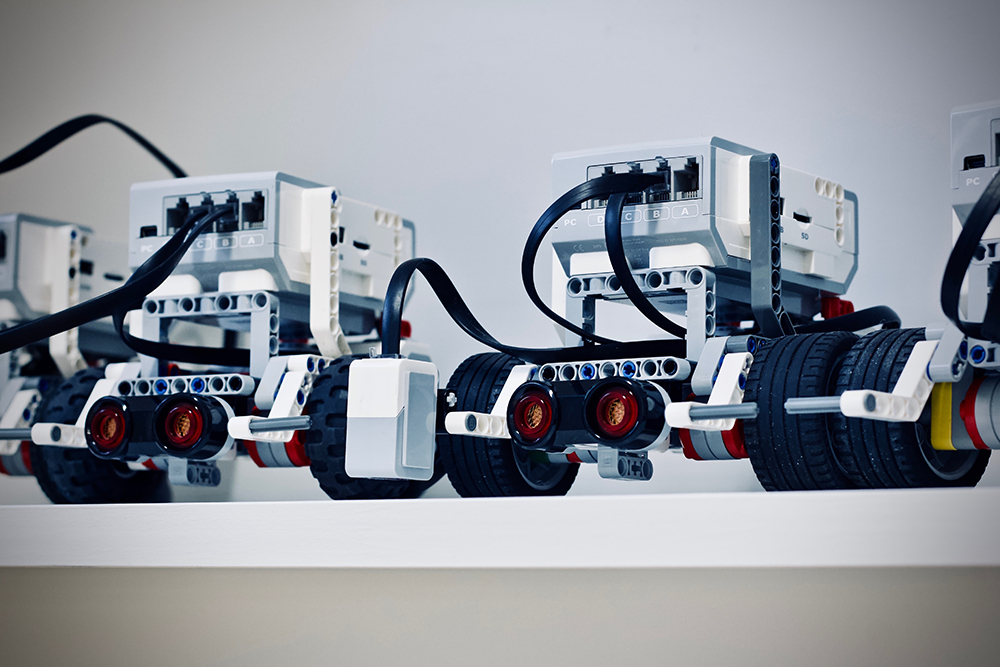More and more autonomous and semi-autonomous machines such as intelligent software agents, specific robots, specific drones and self-driving cars make decisions that have moral implications. Machine ethics as a discipline examines the possibilities and limits of moral and immoral machines. It does not only reflect ideas but develops artifacts like simulations and prototypes. In his talk at the University of Potsdam on 23 June 2019 (“Fundamentals and Artifacts of Machine Ethics”), Prof. Dr. Oliver Bendel outlined the fundamentals of machine ethics and present selected artifacts of moral and immoral machines. Furthermore, he discussed a project which will be completed by the end of 2019. The GOODBOT (2013) is a chatbot that responds morally adequate to problems of the users. The LIEBOT (2016) can lie systematically, using seven different strategies. LADYBIRD (2017) is an animal-friendly robot vacuum cleaner that spares ladybirds and other insects. The BESTBOT (2018) is a chatbot that recognizes certain problems and conditions of the users with the help of text analysis and facial recognition and reacts morally to them. 2019 is the year of the E-MOMA. The machine should be able to improve its morality on its own.
Happy Hedgehog
Between June 2019 and January 2020, the sixth artifact of machine ethics will be created at the FHNW School of Business. Prof. Dr. Oliver Bendel is the initiator, the client and – together with a colleague – the supervisor of the project. Animal-machine interaction is about the design, evaluation and implementation of (usually more sophisticated or complex) machines and computer systems with which animals interact and communicate and which interact and communicate with animals. While machine ethics has largely focused on humans thus far, it can also prove beneficial for animals. It attempts to conceive moral machines and to implement them with the help of further disciplines such as computer science and AI or robotics. The aim of the project is the detailed description and prototypical implementation of an animal-friendly service robot, more precisely a mowing robot called HAPPY HEDGEHOG (HHH). With the help of sensors and moral rules, the robot should be able to recognize hedgehogs (especially young animals) and initiate appropriate measures (interruption of work, expulsion of the hedgehog, information of the owner). The project has similarities with another project carried out earlier, namely LADYBIRD. This time, however, more emphasis will be placed on existing equipment, platforms and software. The first artifact at the university was the GOODBOT – in 2013.
AI Award for the Social Good
The Association for the Advancement of Artificial Intelligence (AAAI) and Squirrel AI Learning announced the establishment of a new one million dollars annual award for societal benefits of AI. According to a press release of the AAAI, the award will be sponsored by Squirrel AI Learning as part of its mission to promote the use of artificial intelligence with lasting positive effects for society. “This new international award will recognize significant contributions in the field of artificial intelligence with profound societal impact that have generated otherwise unattainable value for humanity. The award nomination and selection process will be designed by a committee led by AAAI that will include representatives from international organizations with relevant expertise that will be designated by Squirrel AI Learning.” (AAAI Press Release, 28 May 2019) The AAAI Spring Symposia have repeatedly devoted themselves to social good, also from the perspective of machine ethics. Further information via aaai.org/Pressroom/Releases//release-19-0528.php.
How to Treat Animals
Parallel to his work in machine ethics, Oliver Bendel is trying to establish animal-machine interaction (AMI) as a discipline. He was very impressed by Clara Mancini’s paper “Animal-Computer Interaction (ACI): A Manifesto” on animal-computer interaction. In his AMI research, he mainly investigates robots, gadgets, and devices and their behavior towards animals. There are not only moral questions, but also questions concerning the design of outer appearance and the ability to speak. The general background for his considerations is that more and more machines and animals meet in closed, half-open and open worlds. He believes that semi-autonomous and autonomous systems should have rules so that they treat animals well. They should not disturb, frighten, injure or kill them. Examples are toy robots, domestic robots, service robots in shopping malls and agricultural robots. Jackie Snow, who writes for New York Times, National Geographic, and Wall Street Journal, has talked to several experts about the topic. In an article for Fast Company, she quotes the ethicists Oliver Bendel and Peter Singer. Clara Mancini is also expressing her point of view. The article with the title “AI’s next ethical challenge: how to treat animals” can be downloaded here.
About Robophilosophy
Robophilosophy or robot philosophy is a field of philosophy that deals with robots (hardware and software robots) as well as with enhancement options such as artificial intelligence. It is not only about the reality and history of development, but also the history of ideas, starting with the works of Homer and Ovid up to science fiction books and movies. Disciplines such as epistemology, ontology, aesthetics and ethics, including information and machine ethics, are involved. The website robophilosophy.com or robophilosophy.net is operated by Oliver Bendel, a robot philosopher who lives and works in Switzerland. Guest contributions are welcome. They should be exclusively scientific and should not advertise for companies.




